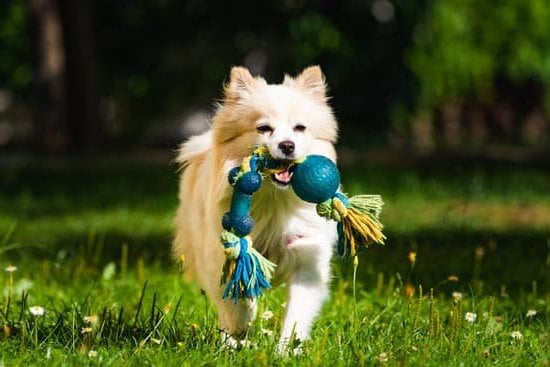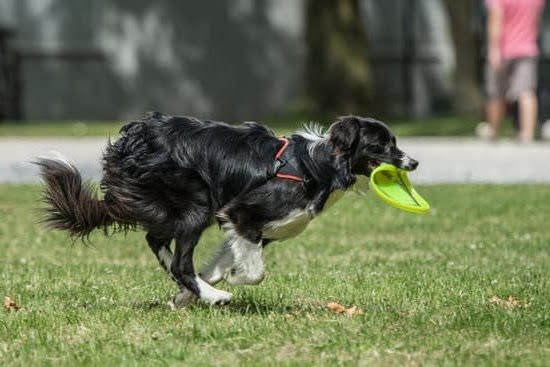Neutering can indeed play a role in the potty training process by influencing a dog’s behavior and bodily functions. As we delve deeper into the relationship between neutering and potty training, it becomes evident that there are various factors to consider in ensuring success in this important aspect of pet care.
Effective potty training not only shapes a dog’s behavior but also contributes to the overall hygiene and living conditions of both the pet and its owner. By establishing good potty habits early on, dogs can grow up to be disciplined and less prone to accidents inside the house. Additionally, proper potty training can strengthen the bond between the dog and its owner, creating a harmonious living environment for everyone involved.
While there are different methods available for potty training dogs, neutering has been suggested as a beneficial step towards achieving success in this area. Understanding the benefits of neutering for dogs is essential in order to make informed decisions about this procedure and how it may impact your pet’s behavior and ability to learn proper potty habits.
Through research findings and expert insights, we can explore how neutering plays a role in shaping a dog’s behavior, including their approach to potty training.
Different Methods of Potty Training for Dogs
Potty training is an essential aspect of dog ownership that can pave the way for a healthy and harmonious relationship between pet and owner. There are several methods that pet parents can use to effectively potty train their dogs. One common approach is crate training, where the dog is taught to associate their crate as a safe and comfortable space. This method utilizes the dog’s natural instinct to keep their den clean and can aid in reducing accidents indoors.
Another popular method is using positive reinforcement techniques such as treats, praise, and rewards whenever the dog eliminates in the designated potty area. Consistency is key in potty training, so establishing a routine for feeding, potty breaks, and exercise can help reinforce good bathroom habits. Additionally, supervision plays a crucial role in preventing accidents indoors by allowing pet owners to anticipate when their dog needs to go outside.
Now, coming back to the question of whether getting a dog neutered helps with potty training – the answer is not straightforward. While neutering may have some impact on behaviors like marking territory or roaming tendencies, it may not directly correlate with potty training success. However, spaying or neutering your dog can have other benefits such as reducing the risk of certain health issues and contributing to overall behavioral improvements.
Benefits of Neutering for Dogs
Neutering, also known as spaying (for females) or castration (for males), is a common procedure done to control pet populations and prevent certain health issues in dogs. However, aside from these reasons, neutering can also have significant benefits when it comes to potty training your furry friend. Understanding how neutering affects a dog’s behavior and physiology can play a crucial role in the success of potty training efforts.
Reduction of Sexual Behaviors
One of the primary benefits of neutering for dogs is the reduction of sexual behaviors such as territorial marking and roaming. Unneutered male dogs are more prone to marking their territory with urine, making potty training a challenging task. By neutering your dog, you can decrease these behaviors, making it easier to establish good potty habits.
Decreased Hormonal Influences
Hormones play a significant role in a dog’s behavior and physiology, including their urinary habits. Neutering reduces the levels of testosterone in male dogs, which can lead to decreased aggression and an increased ability to focus on potty training. Additionally, spaying female dogs eliminates heat cycles, which can cause them to urinate more frequently during that time.
Health Benefits
Aside from behavioral improvements, neutering also has several health benefits for dogs that can indirectly impact their potty training success. For example, neutered dogs are less likely to develop certain health conditions like prostate issues in males and mammary tumors in females. Keeping your dog healthy through neutering can contribute to their overall well-being and make them more receptive to potty training efforts.
In summary, getting a dog neutered can indeed help with potty training by reducing sexual behaviors, decreasing hormonal influences, and promoting overall health. By considering the benefits of neutering in relation to potty training success, pet owners can make informed decisions that will benefit both their canine companions and themselves in the long run.
The Relationship Between Neutering and Behavioral Changes in Dogs
Neutering, the surgical procedure to remove a male dog’s testicles or a female dog’s ovaries, can have significant effects on a dog’s behavior. While many people opt for neutering primarily for population control and health reasons, it is important to understand how this procedure can also impact a dog’s behaviors, including their potty training habits.
One of the main benefits of neutering is that it can help reduce unwanted behavioral issues such as marking in males and heat-induced accidents in females. By removing the hormones that drive these behaviors, neutering can often lead to overall improved potty training success. Here are a few ways in which getting a dog neutered can help with potty training:
- Reduction in marking behavior: Neutered male dogs are less likely to engage in marking their territory with urine, making it easier to establish consistent potty habits.
- Decreased risk of accidents during heat cycles: Female dogs that are spayed no longer go into heat, reducing the likelihood of accidents associated with this hormonal phase.
Additionally, neutered dogs may exhibit calmer behaviors overall, making them more receptive to training and establishing good potty habits. However, it is worth noting that while neutering can play a role in improving potty training success, it is not a guarantee. Consistent training, positive reinforcement, and patience are still essential components of successful potty training for dogs.
Ultimately, understanding the relationship between neutering and behavioral changes in dogs can help pet owners make informed decisions about their furry friends’ health and well-being. By considering all factors – including the potential impact of neutering on potty training – pet parents can work towards establishing healthy routines and habits for their beloved canine companions.
Research on Neutering’s Effects on Potty Training
When it comes to potty training your furry companion, many dog owners wonder: does getting a dog neutered help with potty training? While the primary goal of neutering is not directly related to potty training, there are some potential benefits that may assist in the process.
Here are some key findings from research studies and expert opinions regarding the effects of neutering on potty training:
1. Reduced Marking Behavior: Neutering can help reduce a male dog’s instinctual urge to mark their territory by spraying urine. This behavior is often associated with marking indoors, which can hinder potty training progress. By neutering your dog, you may see a decrease in this behavior, making it easier to establish consistent potty habits.
2. Decreased Roaming Tendencies: Intact males are more likely to roam in search of a mate, leading them to potentially neglect their usual potty routines. Neutering can reduce this urge to wander and focus more on staying close to home, aiding in establishing regular bathroom breaks for your pup.
3. Improved Focus on Training: Neutered dogs may exhibit less distractibility due to hormonal changes post-surgery. This increased focus can contribute to better responsiveness during potty training sessions and quicker learning of where and when it’s appropriate to relieve themselves.
While getting a dog neutered is not a guaranteed solution for all potty training challenges, these potential benefits suggest that it can play a supportive role in the overall success of teaching your canine companion proper bathroom etiquette. Remember that every dog is unique, so it’s essential to consult with your veterinarian or a professional trainer for personalized advice on incorporating neutering into your potty training strategy.
Tips for Effective Potty Training After Neutering
Potty training a dog can be a challenging but essential task for pet owners. While neutering alone may not directly impact a dog’s potty training, it can play a significant role in behavior modification that can positively influence the training process. Neutering, also known as spaying for female dogs, involves removing the reproductive organs, which can lead to reduced hormone-driven behaviors like marking territory and roaming.
One benefit of neutering in relation to potty training is the decrease in marking behavior often seen in intact male dogs. Marking, or lifting a leg to urinate on vertical surfaces, is a common behavior in unneutered males as they try to establish their territory. By reducing the urge to mark through neutering, pet owners may find it easier to train their dogs to relieve themselves in appropriate areas.
Additionally, neutering can help with reducing sexual behaviors that might distract dogs from focusing on potty training. Intact male dogs, especially when around females in heat, may become more focused on mating than on learning where to go potty. Neutered dogs are generally calmer and less driven by reproductive instincts, making it easier for them to concentrate on learning good bathroom habits.
| Benefit of Neutering | Impact on Potty Training |
|---|---|
| Reduces marking behavior | Helps prevent territorial marking indoors |
| Decreases distraction from sexual behaviors | Makes it easier for dogs to focus on potty training |
Common Misconceptions About Neutering and Potty Training
One common misconception about neutering and potty training in dogs is the belief that getting a dog neutered will automatically solve potty training issues. While neutering can have some impact on a dog’s behavior, particularly reducing marking behavior in males, it is not a guaranteed solution for all potty training problems. Potty training requires consistent training, positive reinforcement, and patience regardless of whether a dog is neutered or spayed.
Neutering as the Sole Solution
Some pet owners mistakenly believe that getting their dog neutered will instantly make them fully potty trained. However, this is not the case. Neutering can help reduce certain behaviors, but it is only one aspect of successful potty training. Dogs still need to be trained using appropriate methods and consistent reinforcement to learn where it is acceptable to eliminate.
Timing of Neutering
Another misconception is that the timing of neutering may directly impact a dog’s ability to be successfully potty trained. While some studies suggest that neutering at an early age can have behavioral benefits, such as reducing aggression or marking, there is no concrete evidence that it significantly improves potty training success. Timing of neutering should be discussed with a veterinarian based on individual factors rather than solely for the purpose of potty training.
Conclusion
In conclusion, the question “Does getting a dog neutered help with potty training?” is one that many pet owners ponder when considering the best approach to ensure their furry friend’s successful housebreaking.
Potty training is a crucial aspect of a dog’s behavioral development, impacting not only the cleanliness of your home but also your bond with your canine companion. While there are various methods and techniques available for potty training, the decision to neuter your dog can play a significant role in this process.
Neutering has been shown to have several benefits for dogs beyond just preventing unwanted litters. One key advantage is its potential impact on behavior, including reducing marking behaviors and aggression. By addressing these behavioral issues through neutering, pet owners may find that their dogs are more receptive to potty training efforts. Research has also indicated a correlation between neutering and improved success in housebreaking, suggesting that this procedure can indeed aid in potty training.
When it comes to effective potty training after neutering, consistency and patience are key. Following a routine, providing positive reinforcement, and being attentive to your dog’s needs can all contribute to successful housebreaking.
It is essential for pet owners to understand the relationship between neutering and potty training, dispelling any misconceptions that may hinder their efforts. By recognizing the role that neutering plays in promoting desirable behaviors in dogs, owners can take proactive steps towards achieving long-term potty training success for their beloved pets.
Frequently Asked Questions
Will Neutering a Dog Help With House Training?
Neutering a dog can potentially help with house training to an extent. While it will not automatically solve all house training issues, it can reduce certain behaviors such as marking and roaming that may contribute to accidents in the house.
Does Neutering a Male Dog Help With Peeing?
Neutering a male dog can sometimes help with peeing issues, especially related to marking behavior. Marking is often driven by hormones, so neutering can decrease the urge to mark territory both indoors and outdoors. However, it’s not a guarantee that all peeing issues will be completely resolved.
Does Neutering a Dog Help With Accidents?
Neutering a dog may indeed help with accidents in the sense that it can reduce certain behaviors associated with hormonal urges. For example, neutering can decrease the likelihood of territorial marking and roaming, which could lead to fewer accidents in the house. However, other factors such as proper training and consistency are also essential in preventing accidents.

Welcome to the blog! I am a professional dog trainer and have been working with dogs for many years. In this blog, I will be discussing various topics related to dog training, including tips, tricks, and advice. I hope you find this information helpful and informative. Thanks for reading!





